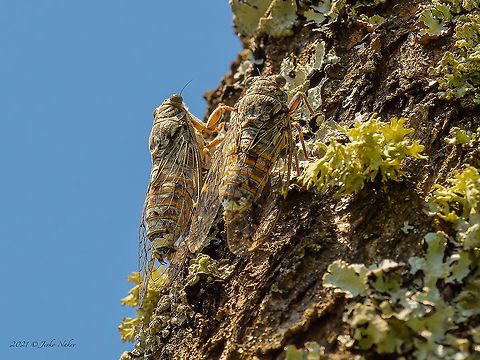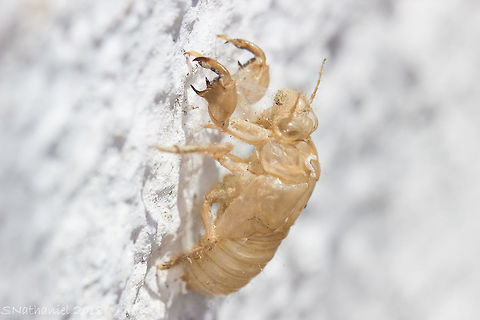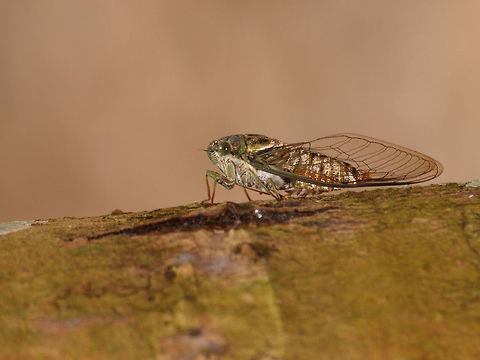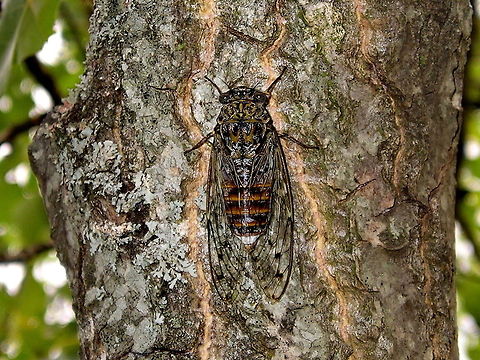
Appearance
The adults reach approximately 25 millimetres in length, with a wingspan of about 70 millimetres.The cryptic coloration of the body varies from brown to gray. The abdomen has reddish segments and a silky pubescence. The head shows large and prominent eyes far apart on the sides, three small eyes located on the top, very short antennae and a long proboscis used for feeding on sap. The membranous front wings are transparent, with well-drawn veins and several characteristic black spots.

Naming
The genus name comes directly from the Latin ''cicada'' meaning "buzzer", while the species name ''orni'' possibly comes from ''Fraxinus ornus'' , where this cicada often lay its eggs deep in branches.
Reproduction
Only males produce their well-known calling song, a clicking sound caused by the contraction and relaxation of abdominal membranes. This song has the function of sexual attraction for females. Usually males sing in aggregations of many individuals on sunny tree branches. When the males are approached by the females, the courtship takes place, in which cicadas repeatedly hug and touch each other with their legs. At the end of this process they mate in the same place.The adult cicadas lay their eggs in the summer, which will hatch in late summer or autumn. While their lifespan as adults lasts only about a month and a half for breeding, the larvae will live for several years underground, feeding on juices of plant roots.

Food
Adult cicadas can be encountered in summer feeding on sap from trees or shrubs, with their mouthparts well adapted for piercing and sucking.References:
Some text fragments are auto parsed from Wikipedia.